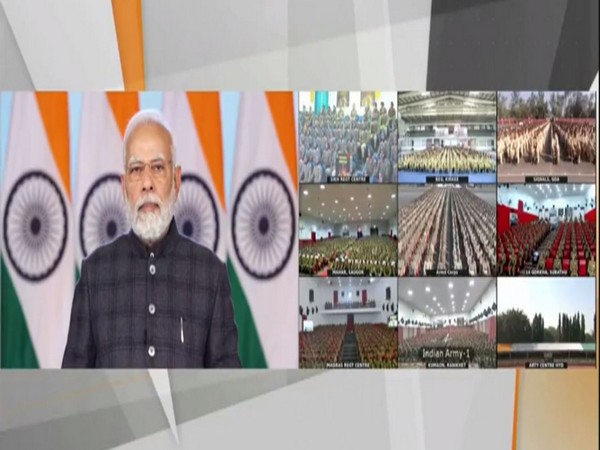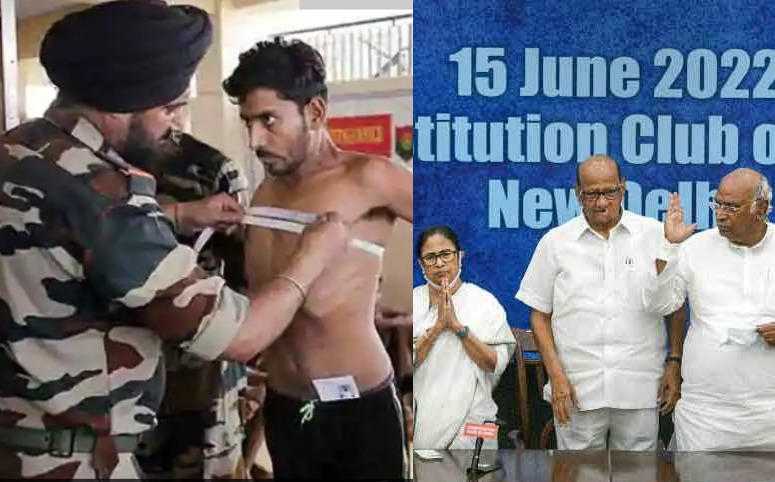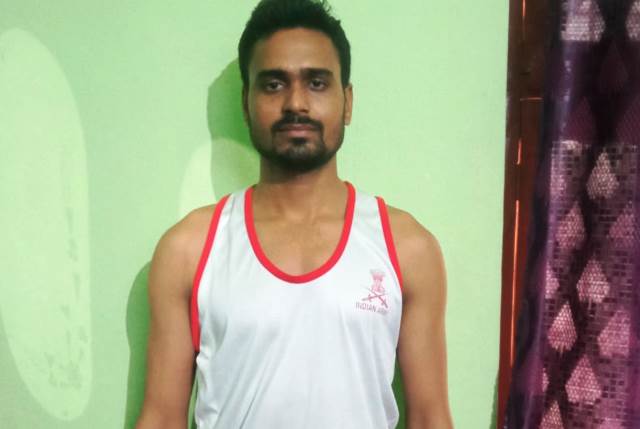Addressing the first batch of Agniveers of the three Services, Prime Minister Narendra Modi on Monday congratulated them on being the “pioneers of the path-breaking Agnipath Scheme.”
The prime minister highlighted that this transformative policy will be a game changer in strengthening our Armed Forces and making them future-ready for the challenges that lie ahead.
Under the Agnipath scheme, announced on June 14 last year, the three services are
recruiting youths between the age bracket of 17-and-half years and 21 years for four years with a provision to retain 25 percent of them for 15 more years. For 2022, the upper age limit was extended to 23 years.
Addressing, through video conferencing, the first batch who have commenced their basic training, PM Modi affirmed that the young Agniveers will make the Armed Forces more youthful and tech-savvy.
Hailing the potential of Agniveers, he said that their spirit is reflective of the bravery of the armed forces which has always kept the flag of the nation flying high.
He said that the experience they will acquire through this opportunity will be a source of pride for life.
Prime Minister said, “New India is filled with renewed vigor, and efforts are underway to modernize our armed forces as well as make them Aatmanirbhar.”
He said that in the 21st century, the way wars are fought is changing. Discussing the new fronts of contactless warfare and challenges of cyber warfare, he said technologically-advanced soldiers will play a key role in our armed forces.
“The current generation of youth especially have this potential, and so the Agniveers will play a leading role in our armed forces in the times to come,” he said.
The prime minister also spoke about how the Agnipath scheme will further empower women. He expressed happiness at how women Agniveers are adding pride to the Naval forces and said that he looks forward to seeing women Agniveers in all three forces.
He also recalled how women are leading armed forces on various fronts, citing examples of women soldiers posted in Siachen and women driving modern fighter planes.
Modi said that getting posted in different regions will give Agniveers an opportunity to get diverse experiences and that they should try to learn different languages and also about different cultures and ways of living.
“Teamwork and honing of leadership skills will add a new dimension to their personality. He exhorted Agniveers to remain curious about learning new things while simultaneously working on bettering their skills in the fields of their choice,” the PM said.
Hailing the potential of the youth and Agniveers, Prime Minister concluded by saying that they are the ones who are going to provide leadership to the nation in the 21st century. (ANI)
Read more: http://13.232.95.176/



